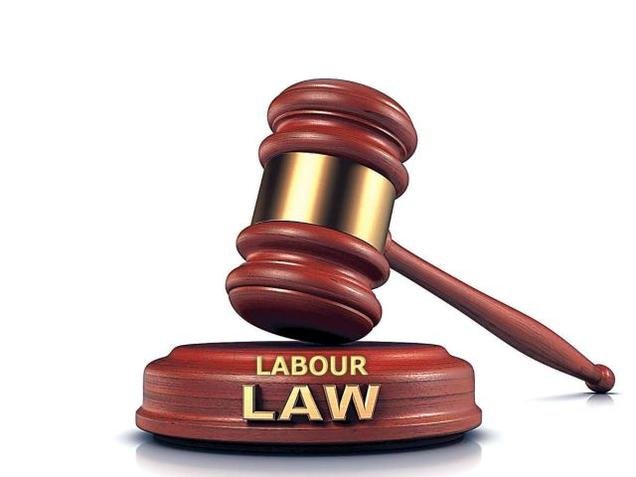New York labour laws: New York labour laws regarding breaks apply to you if you work there. In certain situations, companies are compelled to give workers breaks that are a certain length. If you want to determine how well your employer is in compliance, This blog will clarify some of the New York labour laws' break-related rules.
New York State has labour regulations in place that provide protection for all employees. While we frequently focus on pay inequities, medical coverage, and discrimination, a workplace’s daily operations might go unnoticed, which can cause greater difficulties for employees.
The majority of firms give their employees periodic breaks as an element of policy and tradition, likely knowing that an exhausted and hungry worker is neither effective nor delightful to be around. However, businesses are not obligated by law to provide these breaks, at least not under federal law.
It may come as a surprise, but the Federal Fair Labour Standards Act (FLSA) doesn’t mandate that businesses give their staff brief breaks or lunch intervals during the workweek. Short breaks that employees are entitled to during the workday must be compensated, but employers are not compelled to offer them in the very beginning.

However, the situation is different under New York State law. Many significant employee meal intervals and rest break regulations are included in New York labour laws, and they must be understood and followed by employers. Those who violate these guidelines run the risk of being held liable and facing severe penalties under the state’s wage and hour regulations.
Laws that Determine the Break Period of Employees in New York:- (New York Labour Laws)
Section 162 of the Labor Laws of New York categories the Workers that are entitled for a meal break in New York
Factory Workers- For any shifts longer than six hours beginning between 1:00 p.m. and 6:00 a.m. and lasting longer than six hours, factory workers are allowed to a 60-minute lunch break between 11:00 a.m. and 2:00 p.m. and a 60-minute dinner break at the time midway between the start and end of the shift.
Non-Factory Workers are guaranteed a lunch break of thirty minutes between 11:00 a.m. and 2:00 p.m. for shifts six hours or more that last during those hours, as well as a 45-minute meal break at the halfway point of all shifts longer than six hours starting between 1:00 p.m. and 6:00 a.m.

All Workers- For workdays that last between 11:00 a.m. to after 7:00 p.m., all Employees are entitled to an extended 20-minute break for a meal between 5:00 p.m. and 7:00 p.m.
In accordance with Section 162, the Commissioner may also grant employers’ requests for shorter meal times if the Commissioner determines that the employer’s particular situation justifies the alteration.
Short Break for Tea/Coffee
Employees might be surprised to learn that New York labour rules do not compel employers to give any brief breaks, such as coffee breaks, at any point throughout an employee’s shift.
Consider a scenario in which an employer permits employees to take brief breaks (less than 20 minutes long). Then, these brief breaks must be compensated and taken into account when calculating the number of hours worked through the workday for reasons of overtime.
Breaks lasting no less than thirty minutes are not supposed to be compensated or added to the number of hours worked.
Federal labour regulations demand that workers should have appropriate access to lavatory facilities, notwithstanding the fact that there are no labour standards governing bathroom needs. Employees may want to speak with an attorney about their alternatives if their employer forbids them from taking appropriate bathroom breaks.
Does the Commissioner approve with shorter time frames?
If there is no information that employees would be inconvenienced, the Department will automatically grant a shorter meal duration of no less than 30 minutes, without the employer’s request.

Only in exceptional or unique circumstances, following an examination and the granting of a special permit, is a lunch period of at least 20 minutes allowed.
Breaks for Breastfeeding
Employers are obligated to give their staff members a sufficient amount of time during breaks to provide breast milk for a nursing infant. This break is available for three years following the birth of a child.
These rest or lunch breaks may be compensated or uncompensated. Employers must also give nursing staff members access to a private, separate room where they can express milk. This space needs to be close to the workspace.
Employees who breastfeed are not subject to retaliation for taking this break.
Rest Periods for Home Healthcare Workers
The guidelines for home health aides are not a statute, but the New York State Court of Appeals has issued an opinion. Home health care providers who work a 24-hour shift in a residence but do not live there must get paid for the full day.
This covers breaks for meals, rest, and sleep. In contrast, home healthcare workers who work 24-hour shifts are not required by state law to receive minimum wage for rest and meal breaks.
Who are covered under the Labour Law Section 162?
The law applies to all employers in New York State, whether they are in the public or private sectors, as well as to their staff members. For industrial workers and non-factory workers, the law has various obligations.
Do workers have to be paid during their eating breaks?
Employees aren’t supposed to be reimbursed for meal intervals that are compliant with the law because they are not considered “hours worked” and do not need to be recorded. (For instances where workers continue to work through mealtimes, see the answer above.)
Conclusion
The majority of workers are aware that there are laws in New York State that they are breaking, but far too many are unsure of their legal rights.
Meal break regulations safeguard workers by requiring that they receive at least 30-minute meal breaks from work. All employers, both in the public and commercial sectors, are covered by this regulation. The length of their break, though, depends on where they work. Employers who violate the legislation may be subject to severe penalties.